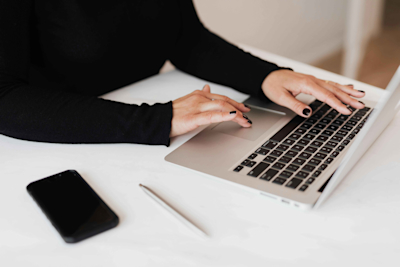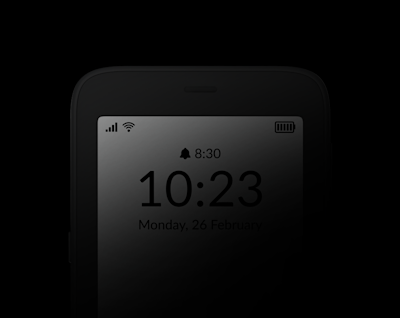
How I Got My Attention Back
As a founder of venture builder App’n’roll and CEO of hardware company Mudita, there are a lot of things I need to handle. You know the drill, hardwired to email and Slack, always ready to solve whatever comes next, either from within the team or outside of the companies.
The Struggle
I rarely had time to eat proper meal before leaving the office in the evening. When your mind is preoccupied with work, sometimes even the most basic tasks are forgotten.
Despite being very busy I often ended up noticing my to-do list grow instead of shrink. I knew based on my experience that half-measures wouldn’t work (been there, done that). This time I needed to do something more radical.
Who’s the driver?
The main principle behind getting my attention back was making a decision: I’m not going to do any tasks unless I think it’s a good time to do them worth doing in the first place.
So instead of being reactive to everything that was coming from the outside world, I needed to decide if, why and when I’m going to do anything.
In order to start as I meant to go on, I cut out all of the distractions that could interfere with my actions.
Goodbye is not always a bad thing
My first step was to remove my Apple Watch from my life. It was the most distracting device I had. It rang and vibrated all the time when I got a notification, no matter if I was at a business meeting, a dinner with my wife or just trying to sleep. When I stopped using it and got used to not having it on my wrist, I felt like a free person.
The second distraction was the notifications themselves. Every time somebody mentioned me on Slack, or wrote to me on Facebook, I was getting information about it. Not to mention the random marketing notifications from the 80+ apps I had on my smartphone, informing me about how much they’ve missed me.
I removed all of them, leaving only one messaging app where I’m contacted only by my partners and my wife. God, that felt good. I think it’s the single most important thing you can do to boost your productivity. It takes a while to unlearn checking your phone every 5 minutes though (it also shows how addicted you are), even without notifications.
After removing notifications, I still struggled with not checking my phone, because my brain was already wired to do it every now and then (#FOMO). The good news is that eventually you stop doing it, the bad news is that it’s like quitting smoking, it requires a lot of willpower.
I needed some help to take this step. As many of you might also have experienced this it’s worth mentioning that sometimes I would unlock my phone and launch email or Facebook subconsciously, without knowing exactly why I’m doing it, without thinking about it at all.
Thank you, Captain Obvious!
There are simple tricks that you can use: change your phone’s colors to grayscale, change your background or lock screen images to black etc. these changes made my phone more boring, but that wasn’t enough. To make sure I was consciously using my smartphone, I introduced changes to the first screen.
I removed all of the apps that weren’t crucial for me, I moved Facebook, Snapchat and Messenger to different screen so I didn’t see them first. This change seemed to be something small, but now I had to go through an additional step to launch these apps which gave me more time to think about what I’m doing and why I’m doing it. It might sound silly but it works, as a result I used these apps less.
Since I used them less and less, after some time I decided to use them only on desktop and I completely removed apps like Facebook or Snapchat from my phone. Fun fact: Even today I sometimes try to open the Facebook app on my phone, which shows how deep this habit was rooted.
In addition to removing apps and notifications, my phone is constantly on Do Not Disturb mode so I achieved the same effect for text messages and calls as I did for apps. At the beginning it was very difficult for some people, including my family who knew me as always-connected. Initially, they felt ignored.
They learned that I would get back to them later, at a time more convenient for me. Some people started leaving me text messages. I explained to others that I thought calling me was rude because it meant they thought I should drop whatever I was doing right away and start listening to what they wanted to say to me. Imagine if a TV was to decide when to turn itself on.
Disconnected, not dysfunctional
I’m not that dependent on my devices anymore. It feels good, but I’m not a monk and I still need to conduct my business activities. To keep things simpler I started to configure Slack in a way that I don’t see all of the channels all the time, I only see the channels with new conversations, this way I’m not overwhelmed by all the possible activities and I’m able to keep something similar to ‘inbox zero’.
View settings on Slack
Another move I made was enabling a vacation auto-responder for infinite time, so every time I get the email, the sender is redirected directly to one of my colleagues and is informed that they need to wait longer than business standard (one day) for my response as I can’t guarantee when I can reply. Thanks to this, I no longer feel the need to check my email every few minutes, because nobody expects me to answer instantly.
Gmail vacation responder
New beginnings
I used to check my smartphone as the first activity after opening my eyes in the morning which meant that I was already stressed by all of the messages I got (fuckups, questions, ASAPs etc). I couldn’t even take a shower or eat breakfast without thinking about the problems and their possible solutions.
Disabling notifications, uninstalling time-consuming apps, and managing Slack/email expectations allowed me to make a final commitment to myself: not checking the business related stuff before coming to the office. I got my mornings back, with a clear mind and positive attitude instead of always being stressed.
Today, I start my workday by going through a hand-written list of what I want to achieve, which I prepare the day before. I do what I think is best at that given moment, instead of being in defense, reacting to whatever the rest of the world wants from me.
My agenda is above everything else. Thanks to that I make progress and keep my mind clear and focused. It sounds simple (and it is) but it also requires a lot of assertiveness and practice to unlearn the stuff that you didn’t even know existed.
Our minds often contain a lot of useless information, we need to unlearn the things that aren’t beneficial to us and learn how to do them in a new, more personalised way.
A to-do list on an E Ink notepad
Related stories

Mudita’s Simple Guide to Digital Minimalism
Digital minimalism allows us to reconnect with ourselves, our loved ones & our surroundings in a more meaningful way.

First glimpse of Mudita Kompakt
Mudita Kompakt is Mudita's upcoming minimalist phone with an E-Ink touchscreen, designed for simplicity and reducing digital noise.

Why do Navy SEALs use box breathing?
Box breathing is a technique used by Navy SEALs, athletes, and others in high-stress situations to help manage stress and maintain focus.
If you'd like to receive the best stories from our blog, keep up to date with our progress and get notified about our product releases and special discounts.